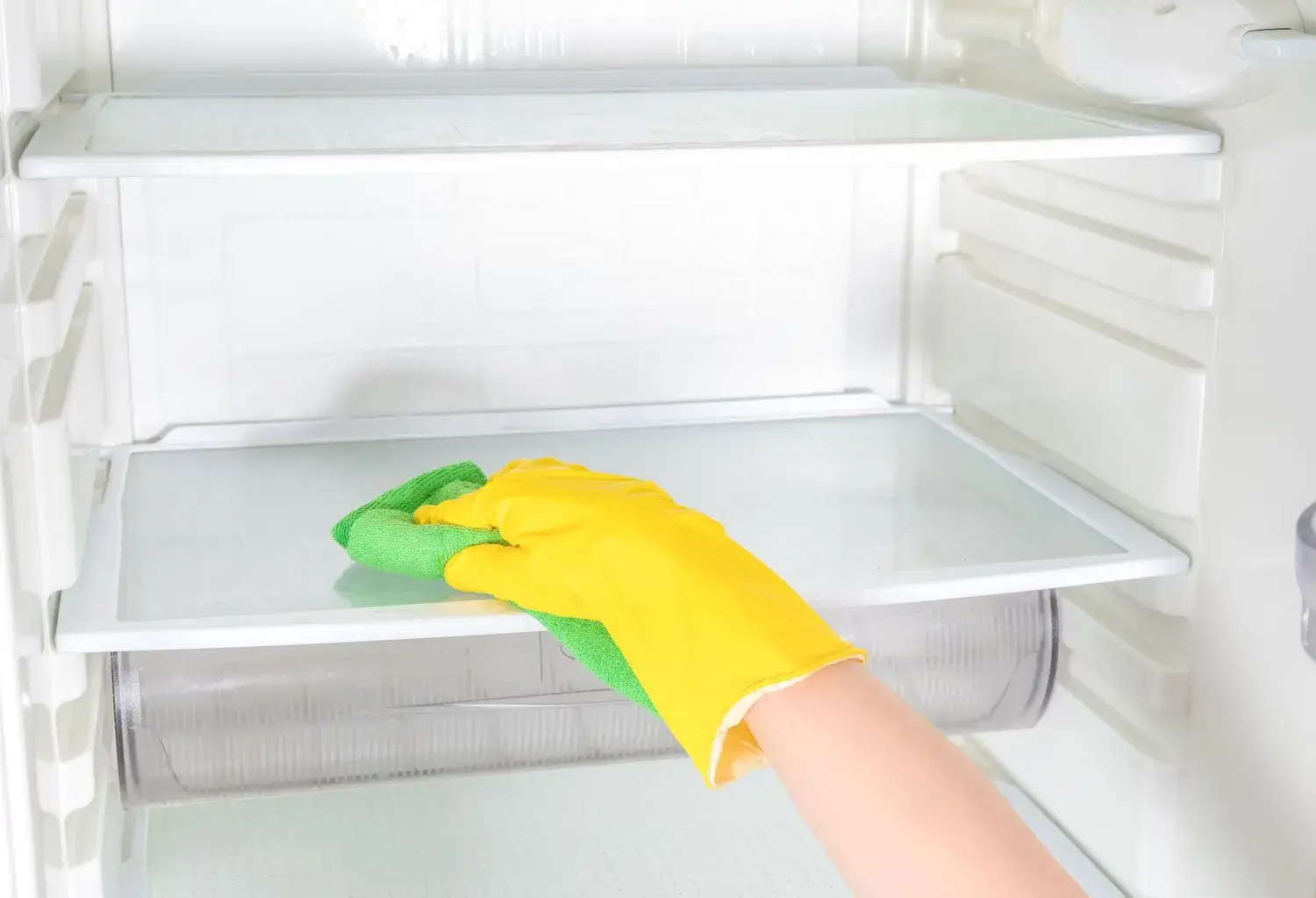The short answer is yes, you can use Lysol wipes to clean your fridge, but there are some precautions you should take. Lysol wipes are convenient and effective for disinfecting various surfaces, but they are not suitable for all materials and situations. In this article, we will explain how to use Lysol wipes safely and properly to clean your fridge, and what alternatives you can use if you don’t have Lysol wipes or prefer a more natural solution.
Why should I clean my fridge with Lysol wipes?
Cleaning your fridge regularly is important for several reasons. First, it helps to prevent food spoilage and contamination, which can cause food poisoning and waste. Second, it helps to eliminate odors and stains, which can affect the quality and taste of your food. Third, it helps to maintain the efficiency and lifespan of your fridge, which can save you money and energy.
Lysol wipes are one of the options you can use to clean your fridge, as they are designed to kill 99.9% of bacteria and viruses, including salmonella, E. coli, and influenza. Lysol wipes are also easy to use, as you don’t need to rinse or wipe off the surface after using them. However, Lysol wipes are not suitable for every part of your fridge, and you should follow some guidelines to use them safely and effectively.
How to use Lysol wipes to clean fridge?
Before you use Lysol wipes to clean your fridge, you should do some preparation steps. First, you should unplug your fridge or turn it off, to avoid any electrical hazards. Second, you should remove all the food and drinks from your fridge, and store them in a cooler or another fridge. Third, you should remove any removable parts, such as shelves, drawers, and bins, and wash them separately with warm water and dish soap.
After you have prepared your fridge, you can use Lysol wipes to clean the interior surfaces of your fridge, such as the walls, the door, and the gasket. You should use a fresh wipe for each surface, and avoid cross-contamination. You should also avoid using Lysol wipes on any surfaces that come into direct contact with food, such as the shelves, drawers, and bins, as the chemicals in Lysol wipes can leave residues that can be harmful if ingested. Instead, you should use a damp cloth or sponge with warm water and dish soap to clean these surfaces.
Once you have cleaned all the surfaces of your fridge, you should let them air dry completely, or use a clean cloth or paper towel to dry them. You should also wipe down the exterior of your fridge, including the handles, with Lysol wipes or a damp cloth. Finally, you should replace the food and drinks in your fridge, and plug it back in or turn it on.
What are the alternatives to Lysol wipes for cleaning fridge?
If you don’t have Lysol wipes, or you prefer a more natural or eco-friendly solution, you can use some alternatives to clean your fridge. Some of the common alternatives are:
- Vinegar: Vinegar is a natural disinfectant that can kill most bacteria and viruses. You can use white vinegar or apple cider vinegar, diluted with water, to spray or wipe the surfaces of your fridge. You should rinse off the vinegar with water after using it, as it can leave a strong smell and taste.
- Baking soda: Baking soda is a natural deodorizer that can neutralize odors and stains. You can use baking soda, mixed with water, to make a paste that you can apply to the surfaces of your fridge. You should let the paste sit for a few minutes, then scrub and rinse it off with water.
- Lemon: Lemon is a natural cleaner that can cut through grease and dirt. You can use lemon juice, diluted with water, to spray or wipe the surfaces of your fridge. You can also add some lemon peels or slices to a bowl of water and place it in your fridge to freshen it up.
Conclusion
Lysol wipes are a convenient and effective option for cleaning your fridge, but you should use them with caution and follow some guidelines. You should only use Lysol wipes on the interior surfaces of your fridge that do not come into direct contact with food, and avoid cross-contamination. You should also rinse or wipe off the surfaces after using Lysol wipes, and let them dry completely. Alternatively, you can use some natural or eco-friendly solutions, such as vinegar, baking soda, or lemon, to clean your fridge. By cleaning your fridge regularly, you can keep it hygienic, odor-free, and efficient.

